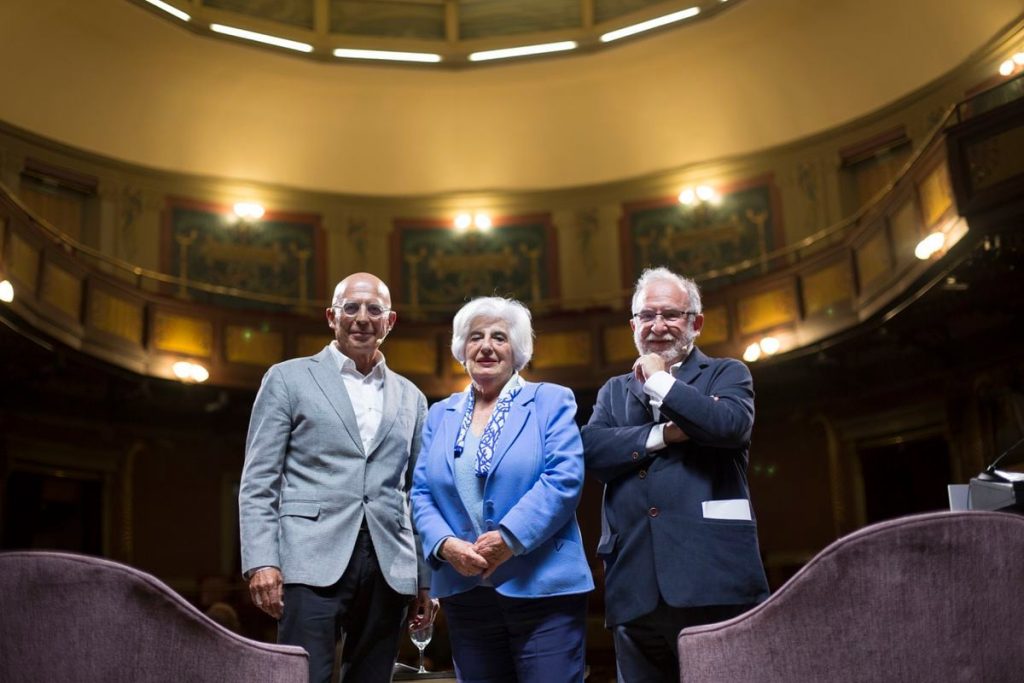José Manuel Gómez Benítez, known as “the brave” at the Complutense University, broke his silence for the first time in public during a conference at the Ateneo de Madrid in collaboration with EL PAÍS. He was involved in negotiations with the terrorist group ETA in 2006 under the orders of Alfredo Pérez Rubalcaba, the Vice President of the Government at that time. Gómez Benítez highlighted the dialogue process between the former President of the Socialist Party of the Basque Country, Jesus Eguiguren, and the Basque leader Arnaldo Otegi, focusing on political and technical discussions regarding autonomy and the activities of ETA’s political branch. The negotiations aimed at exploring possibilities within the framework of autonomy in the Basque Country, rather than discussing independence.
In a context where ETA was already weakened, Gómez Benítez emphasized the public’s weariness towards the terrorist group, especially in the Basque Country. However, negotiating with terrorists was challenging, particularly due to the fierce opposition from the conservative party led by Mariano Rajoy. The negotiations faced obstacles due to demands by ETA members, who insisted on mutual non-aggression and suspension of legal proceedings. Despite these challenges, Gómez Benítez recognized the importance of addressing the disagreements between Batasuna and ETA, especially after a fatal attack by ETA at the Barajas airport in 2006, which led to a temporary halt in negotiations.
During the negotiations, Gómez Benítez encountered a fanaticism among the terrorists, who viewed violent acts as a means to an end. He recalled how ETA militants justified their actions, even when it involved targeting innocent civilians. Despite the difficult discussions, Gómez Benítez believed in the potential for reaching a peaceful resolution by ending ETA’s dependency on violence. The negotiations ultimately led to a shift in power within ETA, as a more moderate leader emerged, pushing for a peaceful resolution. However, the process was complex, involving intense exchanges and tense moments, such as the threat of breaking off negotiations if certain political agreements were not met.
The negotiations with ETA ultimately came to an end in May 2007, following the group’s insistence on specific political demands that were not acceptable to the government. Despite the challenges and setbacks, the negotiations paved the way for further developments, such as the rejection of violence by Batasuna in 2011 and ETA’s declaration of a definitive cessation of activity. Gómez Benítez acknowledged the role of key figures like Arnaldo Otegi in advocating for continued dialogue and the importance of moving towards a peaceful resolution. He emphasized the need for ethical consideration and the recognition of the harm caused by ETA to victims and society as a whole for true normalization and reconciliation in the Basque Country.
In conclusion, Gómez Benítez highlighted the importance of negotiating with terrorists, war criminals, and genocidal leaders to prevent further violence and preserve peace. The dialogue process with ETA, despite its challenges and complexities, played a significant role in laying the groundwork for a peaceful resolution and the eventual disarmament of the terrorist group. By addressing the root causes of conflict and engaging in dialogue, Gómez Benítez emphasized the potential for avoiding further violence and moving towards a sustainable and peaceful coexistence in the Basque Country and beyond.


